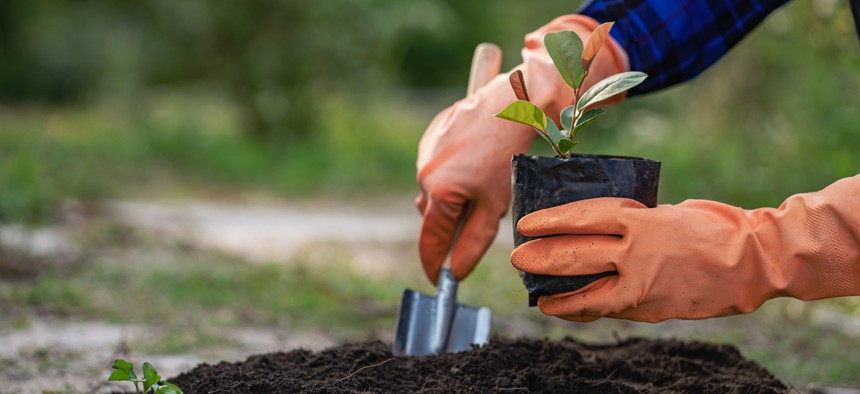New College Corps Program in California Offers Students Debt-Free Pathways

ArLawKa AungTun via Getty Images
Working on issues like climate mitigation, education, and food insecurity, students from rural schools help solve some of the most pressing issues rural communities face today.
This article first appeared on The Daily Yonder and is republished here under a Creative Commons license.
Phillip Andrew Marx takes care of chickens, ducks, and turkeys in exchange for money to help him graduate college with no student debt.
“One of the projects I took on with the birds was figuring out how to get them to produce eggs in the off-season in a sustainable manner,” the Shasta College student told the Daily Yonder. “I am happy to say after some researching, reading, and idea pitching we are still gathering eggs well into winter.” Another project he’s working on has to do with a self-contained water recycling system for the birds. It’s still in the early phase, but its goal is to reduce the water usage involved with poultry by around 80%.
Marx, 34, is one of the thousands of students taking part in the California College Corps, a program that started last year that allows college students in California to receive up to $10,000 in exchange for 450 community service hours. In its first year, 3,200 students were selected for the program. Of those, 68% are Pell grant eligible, 64% are first-generation college students and 80% are students of color.
“Beyond the community service aspect, College Corps fellowship comes with a stipend that allows me to focus on my studies,” Marx said. “This is invaluable; no student debt.”
The college students tackle projects related to climate change, food insecurity, and education.
While the College Corps program works with colleges across the state, some of the rural area colleges include Shasta College, Cal Poly Humboldt, and Chico State, Josh Fryday, California chief service officer, told the Daily Yonder.
“The kinds of things that they're doing is everything from fire mitigation work …in neighborhoods about how communities can protect themselves from fire,” he said.
Fryday said that they would like every college to have a corps program eventually.
“And then we'd love to see this program spread across the country,” he said. “We've had some interest from some other states, but we think there should be a College Corp in every state.”
Fryday said it has been important to provide service opportunities in rural communities.
“And we've seen community members and service members in those communities step up to take climate action in a really important way that's important to the whole state of California, and also important to the planet,” he added.
For Marx, he said he believes change starts with farmers, and he’s proud to work on projects related to farming and agriculture.
“If we want to have a more eco-friendly planet we should update the farms first [because] we all eat something produced on one,” he said. “Having more sustainable farming practices - recycling water, solar/ wind power, worm composting … leads to a more sustainable lifestyle for the working class, which leads to a more sustainable future. A better future, that's what I hope to gain.”
Recruitment for College Corps is currently underway for its next class. Interested students can learn more by visiting #CaliforniansForAll College Corps | California Volunteers.
![]()
NEXT STORY: Can You Lend This Sewer Agency an Ear?





